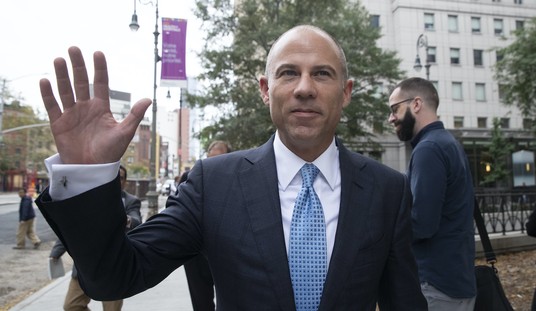Infighting has broken out in the Chinese power elite. The LA Times story is that one the Politburo’s princelings, “Bo Xilai, the charismatic former Communist Party chief in the Chinese city of Chongqing” has been deposed by the central leadership. Apart from losing his Communist Party posts, his wife is now under investigation for the murder of British businessman Neil Haywood, who other news reports, was rumored connected with British intelligence.
The video clip after the Read More says the Chinese Communist Party has always pursued the policy of “wash dirty linen at home”, but this may no longer be possible, after one of Bo’s henchmen, sought asylum in a US consulate, allegedly to avoid being offed by Mr. Bo.
The story of Heywood’s death provides a glimpse into the life at the top in China. The speculation is that Haywood was rubbed out either because he was having an affair with Bo’s wife or had double-crossed the powerful mandarin on some business deal. Still others believe that Haywood is just a pawn in an inner-party power struggle. The object of the game is to knock Bo and his coterie out of the running forever.
Neil Heywood who was found dead in a Chongquing hotel room back in November. Official reports claim he died of alcohol poisoning, but friends say he wasn’t a heavy-drinker. Moreover, his family was told he died of a heart-attack and his body was cremated without an autopsy.
In the following months Heywood’s death, in part, led to the defection of Chongquing police chief Wang Lijun and eventually the downfall of former Chongquing party chief Bo Xilai, who was today dismissed from the Politburo and the Central Committee …
Some suspect that Bo had Heywood killed for having an affair with his wife Gu. China’s Boxun News (via Want China Times) alleges that Heywood was murdered by Che Keming, former director of China’s National Security Agency in Dalian.
But most reports suggest that Heywood was involved with sketchy financial dealings with Bo and his wife. Want China Times reports that Heywood acted as a “acted as a “white glove” for Bo’s money laundering activities and that he was a business consultant for a firm run by Bo’s wife.” And the WSJ’s Page had previously reported that Heywood feared for his life because he had fallen out with the wife of a senior Communist Party leader.
Heywood reportedly told friends that his relationship with Gu had disintegrated after Gu began to suspect that she had been betrayed by someone in the family’s inner circle. She had reportedly grown paranoid and erratic and asked Heywood to divorce his Chinese wife and swear an oath of loyalty and fallen out with him after he refused.
It remains unclear which way this investigation will turn. If Gu is found guilty of murder and if Bo is in anyway implicated in the crime they will likely be punished like a common Chinese citizen. But many argue that this has been nothing but a smear campaign aimed at destroying Bo’s credibility during China’s year of political transition.
It was later revealed that Haywood occasionally worked for Hakluyt & Co, “a British strategic-intelligence firm founded by ex-spies”, meaning MI-6. The Wall Street Journal reported that Haywood actually introduced himself as an adviser to the Aston-Martin dealership. His interlocutors were presumably stirred, but not shaken.
Ian Johnson spins out the political theories, which essentially say that China is now in the midst of a leadership and ideological transition. Not only is a new generation due to accede to power, but questions are being raised about China’s future directions as well. What happened to Bo? Johnson writes:
The answer is rooted in a constellation of powerful families who helped the communists win power in the 1940s and are trying to align their interests before the great congress begins. Bo’s father was Bo Yibo, a famous civil war general who hung on to life so long—he was 98 when he died in 2007—that he was dubbed one of the “Eight Immortals.” (Traditionally, this refers to a group of Daoist gods; in modern Chinese politics it means a specific group of old men who shaped Chinese political life from the 1980s through the early 2000s.) Thanks to his father, the younger Bo rose rapidly in the party: he was mayor of a prosperous city, governor of a province, and then commerce secretary. But by the time of a party reshuffle in 2007, the elder Bo had died and Bo Xilai was shunted off to Chongqing, a lateral move at best. His consolation prize was a seat on the Politburo, making him one of the party’s top two dozen leaders. But he still lacked a place on the much more exclusive Standing Committee, an appointment some analysts thought might occur at the Congress this fall …
The immediate cause for Bo’s fall were the antics of his police chief, Wang Lijun. Wang, who had overseen a brutal crackdown on crime, had been targeted in a corruption investigation and fled to the US consulate in the nearby city of Chengdu. What he hoped to accomplish there is unclear. Some speculated he wanted to turn over dirt on his boss to the US government, but how that would help him is a mystery … targeting him was a way of getting at Bo.
Getting at Bo meant discrediting the “Chongqing model” of greater state control and leftist ideology. “But there’s a growing sense among many Chinese that their country’s government needs to undertake serious reforms … Bo’s policies in Chongqing highlighted these problems too openly. Even in his last press conference, a few days before his dismissal, he pointed out that China’s Gini coefficient—a generally recognized way of measuring economic disparity—was terrible and getting worse.”
It would be foolhardy to attempt to understand the intricate twists and turns of China’s power politics. But it’s safe to say that the system is in crisis. The limits of the current system, like those of the “Blue Model” and the Elite governance in the US and Europe, are now apparent. And in this atmosphere of opportunity Bo was making his play and offering his own version of “Hope and Change”. The instinct of the State Department is almost always to seek stability and they are doubtless hoping the Chinese will launder these stains away without causing Foggy Bottom too much trouble.
But with a second carrier off Iran and President Obama, himself arguably a product of crisis, kicking cans forever down the road, what would the US do if the Middle Kingdom produces a Chinese Summer? Popular Mechanics describes how the B-1s are now training for missions in the Pacific, having to deal with an enemy “who could shoot back”.
the Pentagon has been tasked with keeping up with China’s ambitious militarization. The Chinese military has invested billions in aircraft, long-range missiles, submarines, anti-ship missiles, and air defense missiles, all meant to keep the American military from gaining access to the South China Sea and, increasingly, the Pacific.
Focusing the Pentagon’s attention on the Pacific Rim will present unique challenges for the Air Force. Unlike Marine units (who will be stationed in a new base in Australia) and Navy ships (that will stage in Singapore), combat aircraft will have a role that’s much different from their current missions in Afghanistan.
The Design Margin has gotten smaller over the years, and some never thought it would be needed at the End of History. But time has played a strange trick. The entire world appears to be in flux. From the Europe, to the Middle East, all around the Eurasian continent to Asia, change — but not the Change President Obama had anticipated — is on the march. What will it bring in its train?
How to Publish on Amazon’s Kindle for $2.99
The Three Conjectures at Amazon Kindle for $1.99
Storming the Castle at Amazon Kindle for $3.99
No Way In at Amazon Kindle $8.95, print $9.99









Join the conversation as a VIP Member